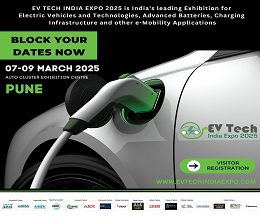Nigeria Power Convertor Market (2025-2031) | Forecast, Companies, Analysis, Size, Revenue, Value, Growth, Share, Outlook, Industry & Trends
Market Forecast By Product Types (Low Voltage Power Converter, High Voltage Power Converter), By Applications (Electronics, Industrial, Infrastructure & Transportation, Power Utilities, Others) And Competitive Landscape
| Product Code: ETC005349 | Publication Date: Sep 2020 | Updated Date: Dec 2024 | Product Type: Report | |
| Publisher: 6Wresearch | No. of Pages: 70 | No. of Figures: 35 | No. of Tables: 5 | |
Nigeria Power Convertor Market Highlights
| Report Name | Nigeria Power Convertor Market |
| Forecast period | 2025-2031 |
| CAGR | 5% |
| Growing Sector | Electronics |
Topics Covered in the Nigeria Power Convertor Market Report
The Nigeria Power Convertor Market report thoroughly covers the market by Types and Applications. The market report provides an unbiased and detailed analysis of the ongoing market trends, opportunities/high growth areas, and market drivers which would help the stakeholders to devise and align their market strategies according to the current and future market dynamics.
Nigeria Power Convertor Market Synopsis
This growth is attributed to various factors such as growing population of the country, urbanization, industrialisation, rise in disposable income of people, government initiatives, and advancements in technology.
According to 6Wresearch, the Nigeria Power Convertor Market size is expected to grow at a significant CAGR of 5% during 2025-2031. The rapid urbanization of the country has increased the electricity consumption. This has raised the demand for power converters in the market. Additionally, the government has been taking measures to improve its energy infrastructure and provide reliable electricity to its citizens. These measures drive the growth of the market. Moreover, the industrial sector of the country is growing rapidly. These industries require stable and uninterrupted electricity to operate efficiently, raising the demand for the market. Furthermore, the rise in disposable income of the people has resulted in a rise in consumer spending on appliances and electronics that require power convertors, such as air conditioners, refrigerators, and televisions.
One of the biggest challenges facing the power convertor market in Nigeria is the inadequate infrastructure for electricity distribution. The installation and maintenance of power convertors require skilled manpower, which is lacking in Nigeria. Most power convertors used in Nigeria are imported, which makes them expensive due to high import taxes and fees.
Nigeria Power Convertor Industry: Leading Players
Some of the key players operating in the Nigerian power convertor market include ABB Ltd., Emerson Electric Co., Fuji Electric Co., Ltd., General Electric Company, Hitachi, Ltd., Mitsubishi Electric Corporation, Rockwell Automation Inc., Schneider Electric SE, Siemens AG, and Toshiba International Corporation. These companies are constantly investing in research and development to introduce innovative and efficient power convertors to meet the growing demands of the Nigerian market.
Nigeria Power Convertor Market: Government Regulations
One such initiative is the National Renewable Energy and Energy Efficiency Policy (NREEEP). This policy aims to increase the use of renewable energy sources in power generation, to achieve 30% of electricity from renewable sources by 2030. Additionally, the Nigerian government has also introduced various incentives and subsidies for companies involved in renewable energy production. Another significant step taken by the government is the establishment of the Rural Electrification Agency (REA). Furthermore, the Nigerian Electricity Regulatory Commission (NERC) has implemented policies to encourage private-sector investment in the power sector. This includes regulations aimed at promoting competition and transparency in the market.
Future Insights of the Market
The power convertor market in Nigeria is expected to witness significant growth in the coming years, driven by factors such as increasing industrialization, urbanization, and government initiatives for improved energy infrastructure. There is a need for efficient power convertors to support the country's economic development due to a growing population and rising demand for electricity. The market is also expected to see growth in renewable energy projects, creating opportunities for players in the power convertor industry. Additionally, advancements in technology are likely to lead to more innovative and sustainable solutions in the market.
Market Segmentation by Types
According to Ravi Bhandari, Research Head, 6Wresearch, the High Voltage Power Converter segment is currently experiencing significant growth in the Nigerian market due to the increasing demand for electricity and power infrastructure development projects in the country.
Market Segmentation by Applications
In terms of applications, the Electronics segment is expected to witness steady growth due to the rising adoption of electronic devices and appliances among consumers.
Key Attractiveness of the Report
- 10 Years of Market Numbers.
- Historical Data Starting from 2021 to 2024.
- Base Year: 2024
- Forecast Data until 2031.
- Key Performance Indicators Impacting the Market.
- Major Upcoming Developments and Projects.
Key Highlights of the Report:
- Nigeria Power Convertor Market Outlook
- Market Size of Nigeria Power Convertor Market, 2031
- Forecast of Nigeria Power Convertor Market, 2031
- Historical Data and Forecast of Nigeria Power Convertor Revenues & Volume for the Period 2021 -2031
- Nigeria Power Convertor Market Trend Evolution
- Nigeria Power Convertor Market Drivers and Challenges
- Nigeria Power Convertor Price Trends
- Nigeria Power Convertor Porter's Five Forces
- Nigeria Power Convertor Industry Life Cycle
- Historical Data and Forecast of Nigeria Power Convertor Market Revenues & Volume By Product Types for the Period 2021 -2031
- Historical Data and Forecast of Nigeria Power Convertor Market Revenues & Volume By Low Voltage Power Converter for the Period 2021 -2031
- Historical Data and Forecast of Nigeria Power Convertor Market Revenues & Volume By High Voltage Power Converter for the Period 2021 -2031
- Historical Data and Forecast of Nigeria Power Convertor Market Revenues & Volume By Applications for the Period 2021 -2031
- Historical Data and Forecast of Nigeria Power Convertor Market Revenues & Volume By Electronics for the Period 2021 -2031
- Historical Data and Forecast of Nigeria Power Convertor Market Revenues & Volume By Industrial for the Period 2021 -2031
- Historical Data and Forecast of Nigeria Power Convertor Market Revenues & Volume By Infrastructure & Transportation for the Period 2021 -2031
- Historical Data and Forecast of Nigeria Power Convertor Market Revenues & Volume By Power Utilities for the Period 2021 -2031
- Historical Data and Forecast of Nigeria Power Convertor Market Revenues & Volume By Others for the Period 2021 -2031
- Nigeria Power Convertor Import Export Trade Statistics
- Market Opportunity Assessment By Product Types
- Market Opportunity Assessment By Applications
- Nigeria Power Convertor Top Companies Market Share
- Nigeria Power Convertor Competitive Benchmarking By Technical and Operational Parameters
- Nigeria Power Convertor Company Profiles
- Nigeria Power Convertor Key Strategic Recommendations
Markets Covered
The report provides a detailed analysis of the following market segments:
By Types
- Low Voltage Power Converter
- High Voltage Power Converter
By Applications
- Electronics
- Power Utility
- Transportation Infrastructure
- Industrial
- Telecommunication Infrastructure
- Others
Nigeria Power Convertor Market (2025-2031): FAQs
| 1 Executive Summary |
| 2 Introduction |
| 2.1 Key Highlights of the Report |
| 2.2 Report Description |
| 2.3 Market Scope & Segmentation |
| 2.4 Research Methodology |
| 2.5 Assumptions |
| 3 Nigeria Power Convertor Market Overview |
| 3.1 Nigeria Country Macro Economic Indicators |
| 3.2 Nigeria Power Convertor Market Revenues & Volume, 2021 & 2031F |
| 3.3 Nigeria Power Convertor Market - Industry Life Cycle |
| 3.4 Nigeria Power Convertor Market - Porter's Five Forces |
| 3.5 Nigeria Power Convertor Market Revenues & Volume Share, By Product Types, 2021 & 2031F |
| 3.6 Nigeria Power Convertor Market Revenues & Volume Share, By Applications, 2021 & 2031F |
| 4 Nigeria Power Convertor Market Dynamics |
| 4.1 Impact Analysis |
| 4.2 Market Drivers |
| 4.3 Market Restraints |
| 5 Nigeria Power Convertor Market Trends |
| 6 Nigeria Power Convertor Market, By Types |
| 6.1 Nigeria Power Convertor Market, By Product Types |
| 6.1.1 Overview and Analysis |
| 6.1.2 Nigeria Power Convertor Market Revenues & Volume, By Product Types, 2021 -2031F |
| 6.1.3 Nigeria Power Convertor Market Revenues & Volume, By Low Voltage Power Converter, 2021 -2031F |
| 6.1.4 Nigeria Power Convertor Market Revenues & Volume, By High Voltage Power Converter, 2021 -2031F |
| 6.2 Nigeria Power Convertor Market, By Applications |
| 6.2.1 Overview and Analysis |
| 6.2.2 Nigeria Power Convertor Market Revenues & Volume, By Electronics, 2021 -2031F |
| 6.2.3 Nigeria Power Convertor Market Revenues & Volume, By Industrial, 2021 -2031F |
| 6.2.4 Nigeria Power Convertor Market Revenues & Volume, By Infrastructure & Transportation, 2021 -2031F |
| 6.2.5 Nigeria Power Convertor Market Revenues & Volume, By Power Utilities, 2021 -2031F |
| 6.2.6 Nigeria Power Convertor Market Revenues & Volume, By Others, 2021 -2031F |
| 7 Nigeria Power Convertor Market Import-Export Trade Statistics |
| 7.1 Nigeria Power Convertor Market Export to Major Countries |
| 7.2 Nigeria Power Convertor Market Imports from Major Countries |
| 8 Nigeria Power Convertor Market Key Performance Indicators |
| 9 Nigeria Power Convertor Market - Opportunity Assessment |
| 9.1 Nigeria Power Convertor Market Opportunity Assessment, By Product Types, 2021 & 2031F |
| 9.2 Nigeria Power Convertor Market Opportunity Assessment, By Applications, 2021 & 2031F |
| 10 Nigeria Power Convertor Market - Competitive Landscape |
| 10.1 Nigeria Power Convertor Market Revenue Share, By Companies, 2024 |
| 10.2 Nigeria Power Convertor Market Competitive Benchmarking, By Operating and Technical Parameters |
| 11 Company Profiles |
| 12 Recommendations |
| 13 Disclaimer |
- Single User License$ 1,995
- Department License$ 2,400
- Site License$ 3,120
- Global License$ 3,795
Search
Related Reports
- Voluntary Carbon Credit Market (2025-2031) | Companies, Outlook, Share, Forecast, Revenue, Value, Industry, COVID-19 IMPACT, Growth, Size, Analysis & Trends
- Water Purifier Market (2025-2031) | Value, Share, Size, Growth, Industry, Outlook, Analysis, Forecast, Trends, Companies & Revenue
- UAV Market (2025-2031) | Size, Forecast, Value, Revenue, Trend, Growth, Analysis & Outlook
- Smart Speaker Market (2025-2031) | Size, Trends, Share, Outlook, Revenue, Forecast, Analysis, Value, Segmentation & Industry
- Microgrid Market (2025-2031) | Value, Share, Growth, Outlook, Industry, Companies, Trends, Revenue, Forecast, Analysis & Size
- Mobile Credential Reader Market (2025-2031) | Analysis, Industry, Size, Share, Revenue, Forecast, Trends, Growth, Value & Outlook
- North America Planting Equipment Market (2024-2030) | Outlook, Size, Growth, Companies, Revenue, Share, Analysis, Forecast, Industry, Value & Trends
- Light Fidelity (Li-Fi) Market (2025-2031) | Share, Revenue, Trends, Size, Industry, Forecast, Companies, Growth, Outlook, Analysis & Value
- UAE Ready Mix Concrete Market (2025-2031) | Industry, Segmentation, Share, Analysis, Forecast, Companies, Outlook, Competitive Landscape, Trends, Value, Growth, Size & Revenue
- Australia Bearings Market (2024-2030) | Growth, Analysis, Trends, Value, Outlook, Industry, Share, Forecast, Size, Segmentation & COVID-19 IMPACT
Industry Events and Analyst Meet
Our Clients
Whitepaper
- Middle East & Africa Commercial Security Market Click here to view more.
- Middle East & Africa Fire Safety Systems & Equipment Market Click here to view more.
- GCC Drone Market Click here to view more.
- Middle East Lighting Fixture Market Click here to view more.
- GCC Physical & Perimeter Security Market Click here to view more.
6WResearch In News
- India's Printer Market Faces 20.7% Decline in Q4 2023: Epson and HP Lead Amidst Downturn
- India's Camera Market Sees 8.9% Decline in Q4 2023; Canon Leads with 38.4% Share
- Doha a strategic location for EV manufacturing hub: IPA Qatar
- Demand for luxury TVs surging in the GCC, says Samsung
- Empowering Growth: The Thriving Journey of Bangladesh’s Cable Industry
- The future of gaming industry in the Philippines













